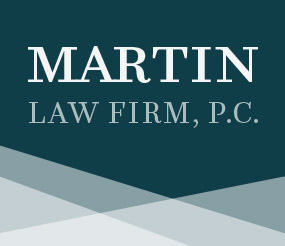The short answer is that it depends. A Pennsylvania divorce can last a few months, or the divorce can drag on for years. Unfortunately, for those remaining in a marriage that is about to end, the parties to the divorce must endure the divorce process regardless of the duration. The duration of the divorce is mostly determined by two very important factors: 1) the ability of the spouses to resolve matters amicably and 2) the number of divorce – related matters such as child custody, property division, alimony and spousal support, and child support.
1. Uncontested Divorce – no children, no assets
The quickest divorce cases are those in which both parties will give their consent to the divorce and when there are no minor children or marital assets to divide up. In Pennsylvania, Section 3301(c) of the PA Divorce Code allows for a mutual consent divorce after 90 days following the filing and service of the divorce complaint. In these situations, the plaintiff-spouse will file a divorce complaint alleging that the marriage is “irretrievably broken”. He/she will serve the divorce complaint on the other spouse and then, after 90 passes, both spouses file Affidavits of Consent with the Court. The Affidavit of Consent is a document telling the Court that the spouse wants to get divorced. The Court will honor the wishes and grant a Divorce Decree soon thereafter. The key factor here is that the spouses must both consent to the divorce and there are no delays caused by child custody disputes or disputes over the division of marital property.

2. Uncontested Divorce – no minor children, some assets
If both spouses consent to the divorce and they have some marital assets, the divorce process may take a bit longer. The Court will not grant the divorce decree unless and until the marital assets are equitably divided. In these situations, the spouses are encouraged to try to reach an amicable resolution to the equitable division of the marital assets. For example, if the parties have a marital home and some retirement savings, the parties can negotiate who keeps the home and how much of the retirement savings each spouse will receive. The division of marital assets can be a 50/50 split, a 60/40 split or some other combination. In the best-case scenario, the spouses will use the 90-day window to negotiate a settlement agreement for the marital assets. Then, when the 90 days passes, the parties can submit their Affidavits of Consent to the Court along with the written Marital Settlement Agreement and the Court will grant the Divorce Decree soon thereafter.
If, on the other hand, the spouses cannot agree on a division of the marital assets, the case is often referred to a court-appointed master. The master assumes the role of an arbitrator and makes a “recommendation” for the division of assets. If the parties do not accept the recommendation, then the case is passed on to a Judge and a hearing may be necessary. In these situations, the Court will not issue the Divorce Decree until the matter is resolved. Cases that go to the master often take a year or more. If the case gets referred to a Judge, then the case can take two years or more.
3. Uncontested Divorce – minor children, some assets
When children are involved, this adds another layer of complexity to the divorce process. Again, during the 90 days, the parties are free to negotiate and resolve child custody matters along with matters involving the equitable division of marital property. The spouses are free to negotiate a custody schedule and other custody related provisions and incorporate them into a custody agreement. If the parties can finalize a written agreement for custody and for the division of marital assets during the 90 days, the parties can be divorced very soon thereafter.
When the parties cannot agree on child custody issues, many Pennsylvania counties implement a process for the case to be heard by a custody conciliator. The conciliator will serve as a mediator and the role of the conciliator is to try to get the parties to agree on a resolution of the dispute. If the conciliator cannot get the parties to agree, then the case is sent to a Judge and a custody trial may be necessary. Custody cases can take a few years to proceed through the court system. In addition, if a master is involved in the equitable division matter, that too can take significant time. In these situations, it is not uncommon for the divorce process to take 3-5 years or more.

4. Contested Divorce
If a spouse does not consent to the divorce, then the PA Divorce Code requires the other spouse to allege and prove that the parties have been continuously separated for at least one (1) year. This is a divorce under Section 3301(d). The process is different from a 3301(c) in that instead of the 90-day delay, the delay is at least one (1) year. During this time, the plaintiff-spouse must live separately and apart from the other spouse. This must be continuous. At the end of that period, the plaintiff-spouse will request from the Court that divorce grounds are established. The other spouse may object to this request and the case will continue to a hearing, if necessary. The court will also still need to address issues of property division, alimony, child custody, and any other matters. If one spouse does not consent to the divorce, then it is unlikely he/she will agree to an amicable resolution of these other matters. As such, the contested divorce cases that involve minor children and marital property are cases that often take many years.
CONTESTED DIVORCE AND UNCONTESTED DIVORCE LAWYERS
At The Martin Law Firm, our priority is to help facilitate a quicker, efficient divorce process for our clients. When an amicable resolution of divorce related matters is not possible, we have the experience to litigate contentious matters to achieve our clients’ desired outcomes. Call us today for a free case evaluation at (215) 646-3980.
